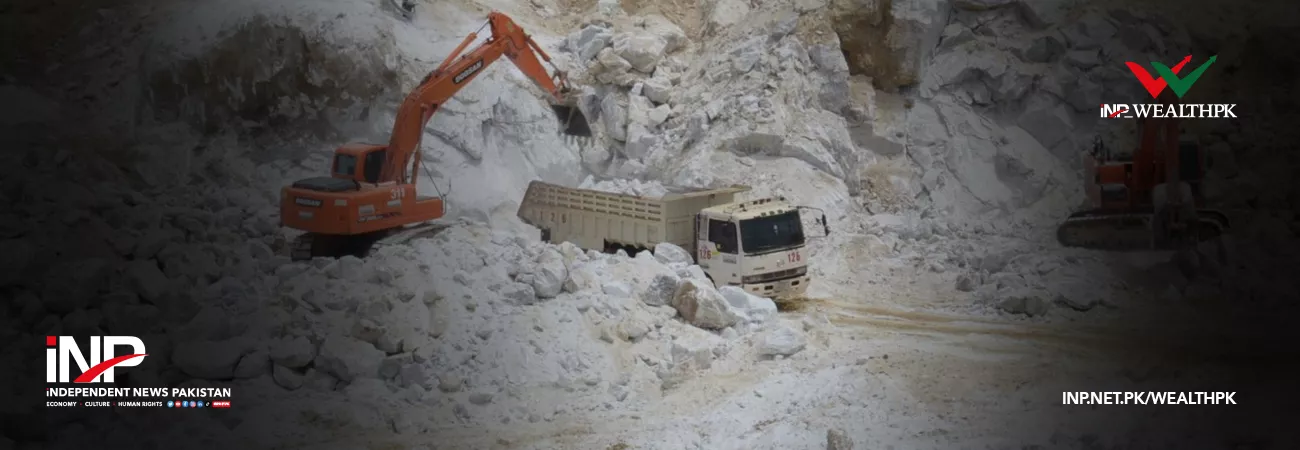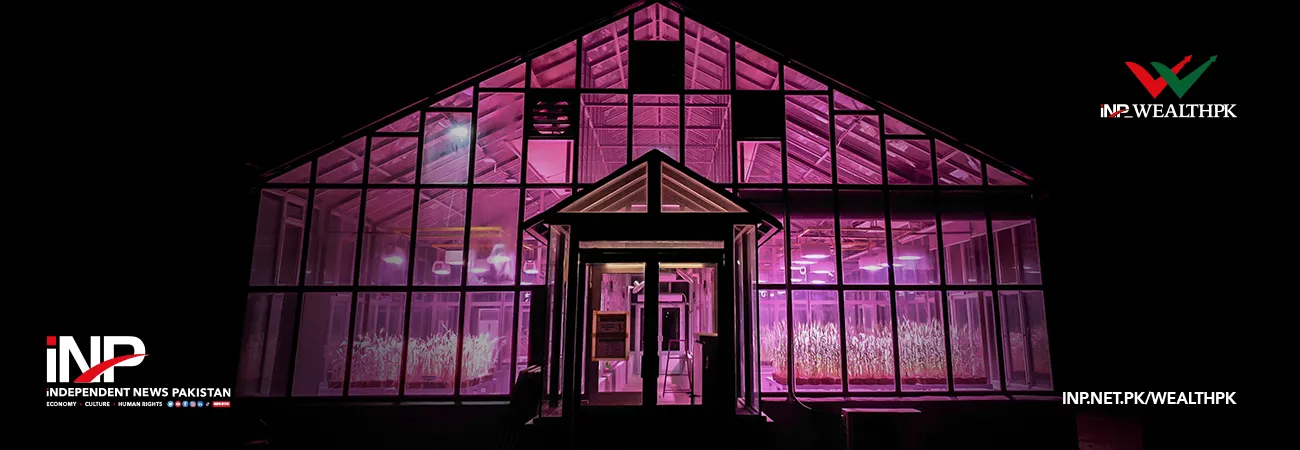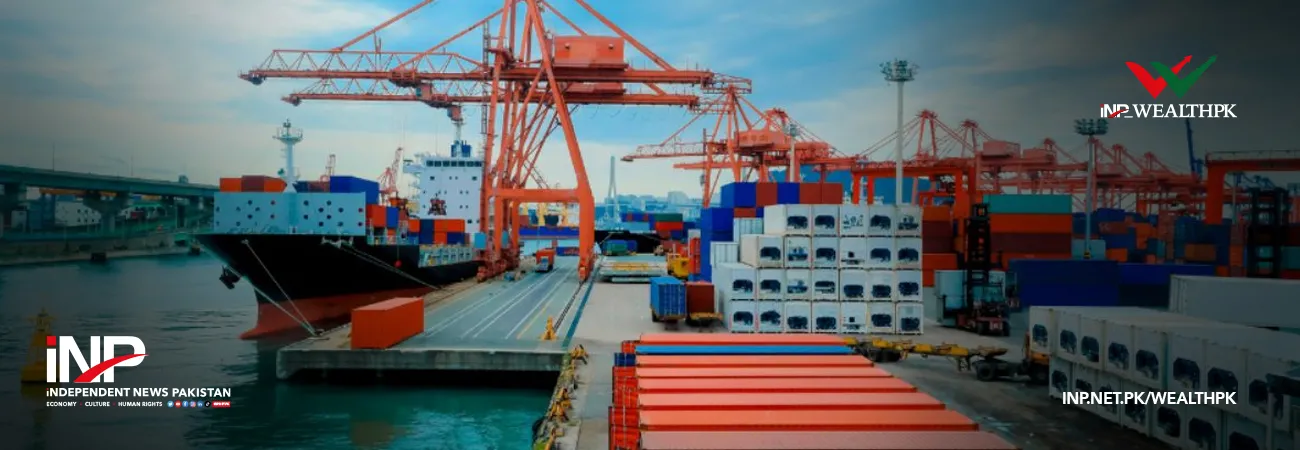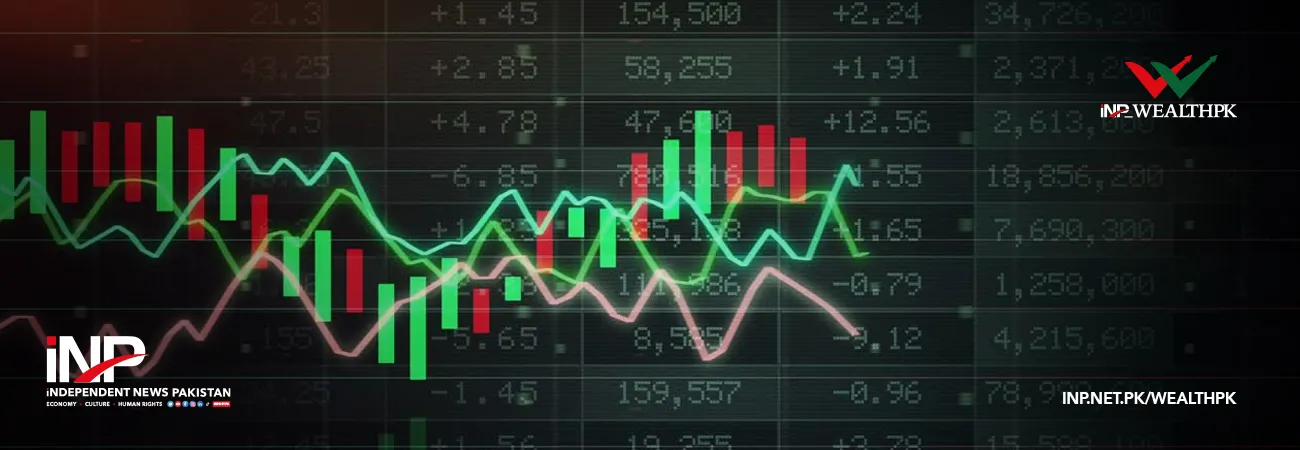INP-WealthPk
Faiza Tehseen
Pakistan has sizable gypsum deposits but lacks a proper industry for manufacture of valuable items for export. It is mostly exported in raw form and imported in processed items, causing a drain on the foreign exchange reserves, said Muhammad Yaqub Shah, Member Sectoral Council for Marble, Granite and Minerals, Ministry of Finance, while talking to WealthPK.

Yaqub, who is also Principal Geologist at Islamabad-based Global Mining Company, said gypsum is a sulfate mineral composed of calcium sulfate dihydrate that chiefly occurs in sedimentary deposits. “Qualitative gypsum deposits are abundantly found in many natural rock units in Pakistan. Kohat (Jatta Gypsum) has deposits of 4,914 million tons, Dera Ismail Khan (Shirani area, Zamburge shale member rock unit) 137 million tons; Nummulitic limestone rock units in Spirtargi, Mawand-Khatran and Barkhan Chamalang areas of Balochistan province 32 million tons, and Daud Khel, Dera Ghazi Khan, and Khewa areas (Khisar/Khewa formation) of Punjab 120 million tons. The major deposits have the necessary utilities and infrastructure. Gypsum deposits in KP can also be viewed as a clear white streak from the satellite imagery.’’

“Gypsum has many industrial, architectural, and agricultural uses. For example, it is used as fertilizer, as humidity controller, in earth desalination, and preparation of mortar statues, bricks, roofs, wall motifs, wall boards. It is also a good thermal and energy-saving material to retain heat and cooling. Rock wool is also prepared from gypsum that provides resistance against heat, water, fire, and even termites. When wet, it is easy to cast, sets quickly and is rigid after shaping. It is lighter in weight but excellent in strength,’’ he said.
Yaqub added that gypsum plaster is rather cheap but qualitative as compared to the traditional cement plasters. In Europe, more than 200 million square meters of gypsum plasterboard panels are produced annually. Iran and Thailand consume over 800 million tonnes of gypsum plaster per annum. ‘’Despite the availability of high-quality gypsum in Pakistan, the construction industry has yet to use it as a plaster. It is a cost-effective construction material and conserves temperature up to 120⁰-150⁰ centigrade. The technology for making gypsum plaster is simple and suitable for small, medium, and high-scale operations.’’
Yaqub shared with WealthPK that Pakistan has five to six billion tonnes of gypsum deposits out of which at least 39 million tons are consumed annually. The country has about 25 cement manufacturing plants with a production capacity of at least 24-25 million tonnes per annum. These plants use imported coal and furnace oil or other required material to meet their energy need.
“With a growing need for cement in the country, more cement production is needed. Hence, the country will have to spend more on import of fuel. In order to avoid this loss of hard-earned money on fuel import, there is a need to find other cheaper and cost-effective cementitious materials such as gypsum plaster, gypsum sheets, and gypsum blocks. All testing facilities are locally available to find and gauge the gypsum quality,” he added.
In the construction sector, gypsum blocks placed in all non-load-bearing internal partitions, ceiling boards, and internal wall plastering can cut the cost of traditional materials to a great extent. The country needs at least 25-30 more gypsum plaster manufacturing plants with a production capacity of 100,000 tons per annum. All over the world, gypsum plaster is produced on both small and large scales by calcining through different techniques, i.e., using direct heat, mixing it with fuel and burning the two together, or cooking it within a container. By focusing a little more, the equipment for its processing can also be manufactured locally. The glass and ceramic section of the Pakistan Council of Scientific and Industrial Research (PCSIR), Lahore is adept in gypsum processing.
Establishment of pilot plants and testing facilities may lead to preparation of a proper feasibility for its regular commercialization. The Small and Medium Enterprises Development Authority (SMEDA) may play its role in promoting this new industry. With the establishment of the local gypsum processing industry, new job opportunities will be developed. Value-added gypsum products will help the government generate revenue and add foreign exchange to the state wallets through their export. It will also boost the socio-economic conditions of communities involved in the mining sector.
Credit: Independent News Pakistan-WealthPk













